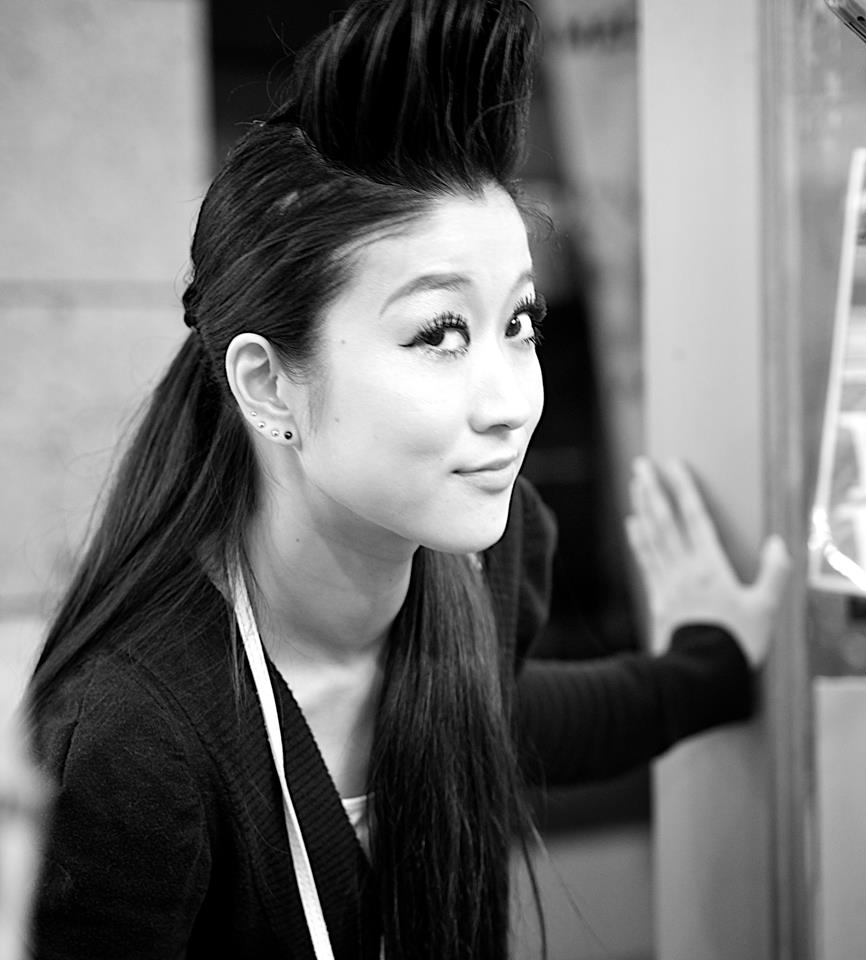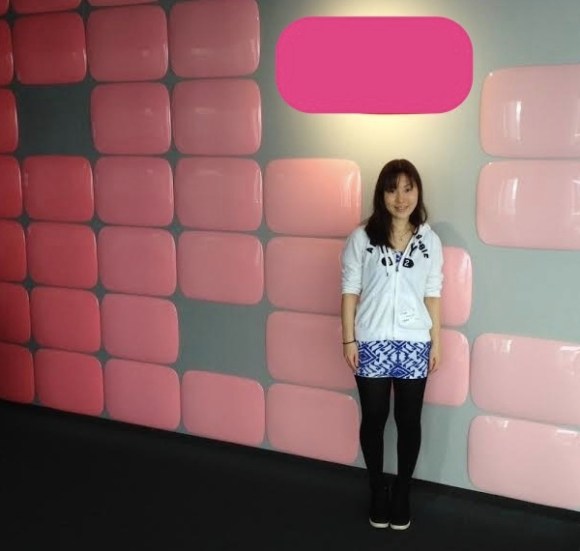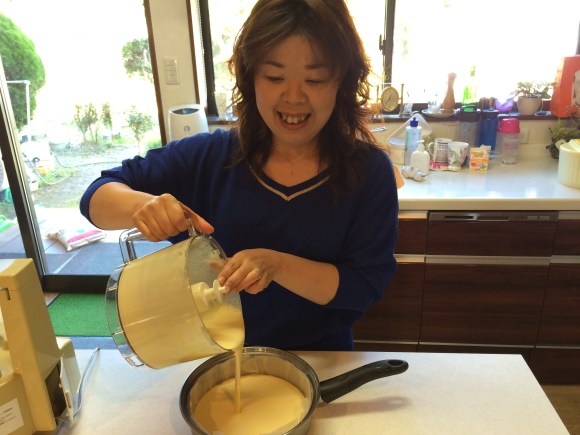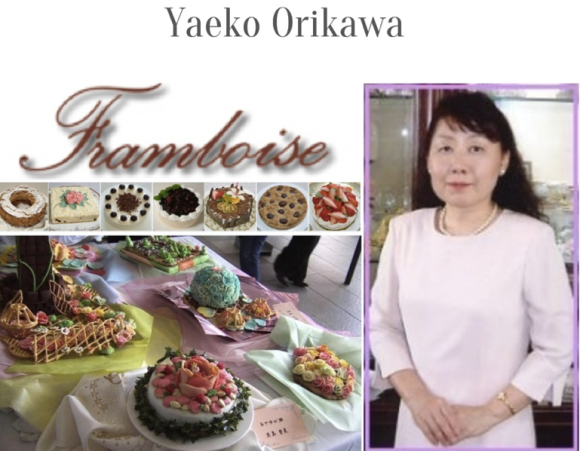
Prime Minister Shinzo Abe’s “womenomics” scheme aims to get more women into the workforce in order to combat the shrinking and aging population and help spur the Japanese economy. While I believe women can save Japan, I don’t think it’ll be through womenomics. As any Japanese woman can tell you, it’s not as easy as it should be for females to work full-time in this country. In the Japanese business world, companies are loath to offer working conditions that males and females alike enjoy in other developed countries, such as reasonable work hours (40 hours a week with optional overtime), work sharing, flexitime and working from home. Whereas in the West the attitude is that as long as you get your work done on time, it doesn’t matter how you do it, in Japan emphasis is more on the hours put in at the office to show your loyalty to the company. Add to that additional cultural biases against gender, age, experience and returning to work after raising children, and you have a recipe for “eternal housewife.”
Clearly, the problem is deeper than merely hiring more women, or adding more day care centers, both actions Abe is pushing. But the good news is that there is a group of women who are beating the system, and who have been for some time now.
This week, as part of our Women in Japan Series, we introduce you to three female entrepreneurs who have successfully forged ahead in the business world by defining their own terms. They can support themselves financially, are able to live more freely, have time for their children and families, and work fewer hours than they’d have to in the corporate world. And the best thing about it? They’re regular women, just like you, me, or your partner. Drum roll please…
1. Mari Tobita
Mari found her knack in online sales even before she graduated from high school. “I went to the U.S for the first time when I was in high school, and I bought some clothes for myself. But the sizes didn’t fit, so I tried to sell them on online auctions in Japan,” she tells RocketNews24 in an online interview. At first, Mari was surprised at how quickly the items sold, indicating there was an untapped market. She also noticed that many brands such as Tommy Hilfiger and Ralph Lauren were cheaper in the U.S. She decided to try to import these items and sell them online in Japan. Mari admits that her business sense probably comes from her family, who are mostly business people. But Mari’s reasons for starting her own business go deeper.
“I always thought it was unfair that females had to quit their jobs when they get married or become pregnant, even when they are making a good income or are very talented. I thought that if I can sell products online, then I don’t have to work for other people.” By the time Mari graduated from high school, she was doing well enough that she didn’t need a part-time job.
Mari seems very perceptive at uncovering new niches. She eventually settled on selling shoes because not only did she herself find it hard to find shoes that fit her tiny feet, but she realized her foreign friends living in Japan couldn’t find shoes big enough for theirs. In addition, Mari saw another niche that no one was serving yet: the transgender market.
She opened her website, “912Shop,” (pronounced “nine-twelve shop”) in 2010. “This is my fifth year doing this, and my twelfth year doing online business, and it’s always been sustainable, even with economic ups and downs.” When I asked her what the hardest thing was being a woman entrepreneur, she said, “Often men assume they are smarter than you or have more experience, even when you have been doing this business for much longer, or even when you know your market better.”
“I’ve never liked the idea of working at a big company, dealing with the morning and evening commutes or having to wear a suit. Also, as a woman, this way I don’t have to try to climb the corporate ladder to make a decent income. I also love the fact that even when I am overseas, I can still run my business. I don’t have to work a lot of hours to get things done. I’m very satisfied with what I do.”
2. Kuniko Thornley
I’m sitting in Kuniko’s house in Okayama Prefecture while she shows me, rather than trying to convince me through words, how superior Amway products are to other common items on the supermarket shelves of Japan. Her two children, six and ten years old, are at school now so the house is quiet with just she, her husband and I inside.
An Amway “Distributor” for six years, Kuniko started working for the company because she likes their business philosophy. “Amway gives everyone a chance to work, no matter who they are, no matter race, religion or country,” she says while putting a blob of black ink on the back of each of my hands. “They offer products that are environmentally friendly and some organic products too such as soy sauce and miso.” Amway operates in over 60 countries and regions around the world. She dabs some Japanese dish washing liquid on top of the ink on one of my hands. “Take your index finger and start swirling,” she instructs. I “swirl” and the patch of ink becomes a blob of sticky gunk. “Japanese women are very smart housewives, so you have to show them that Amway products are better than what they are currently using, or that Amway products are twenty percent cheaper than proposed prices on supermarket shelves. She dabs a spot of Amway dish washing liquid on my other inked hand and indicates with her index finger for me to swirl. I swirl again but this time, the ink combines with the soft liquid gel. It wipes off easily with a tissue, leaving no residue behind. The magician has made her point.
When selling Amway products, simplicity is key. “You have to show clients that they can make a healthy dinner in just 30 minutes, and be finished in the time it takes to go pick up the kids from school,” says Kuniko while taking the lid off of ginger rice that has been cooking all by itself whilst she was giving me the ink on hand demonstration. “Chicken, ginger, oyster sauce and soy sauce–it’s quick, easy and anyone can do it,” she says as we sit down to lunch with her husband.
▼Kuniko demonstrates how to make a cheesecake without having to bake it.
“These days most of my female friends have to work to make ends meet. But daycare is very expensive so many end up spending most of their salary on daycare. So why work?” she says, single-handedly striking down one of Prime Minister Abe’s main agendas–to provide more daycare centers. “And then, daycare centers will not look after sick children, so if their child has a fever, they have to ask their boss for time off, or maybe they have to leave work early to pick up the child from daycare. The boss doesn’t like this, so eventually she must quit in order to take care of her children.”
Kuniko spends an average of four hours a day giving cooking and product demonstrations in her house or visiting other houses, always with an introduction and an appointment first. She even came out to my house a week later, just to let me see how she works; she brings a small suitcase full of products and lets you try them all out in your own environment. Kuniko is nothing short of brilliant. And her business just keeps growing.
“She is so successful and I’m really proud of her,” says her husband, Simon, a U.K. national who has quit his university job and is now a stay-at-home dad. When Kuniko holds demonstrations at home, her clients often bring their children with them, so Simon babysits until the mothers are finished. He also grows organic vegetables in the back yard. But what Simon said next is what really blew me away as it challenges conventional thinking. “The kids really love having both parents at home. There is always someone here for them.” While the rest of Japan (and much of the world) struggles with questions such as whether women should work or stay at home, Simon reminds us that the best thing for the children may be to have both parents at home, an option people rarely, if ever, consider.
3. Yaeko Orikawa 折川八重子
Yaeko Orikawa has been running Framboise Cake Decorating School since 1989. Although nearing retirement now, at one time she had 250 students enrolled at her school. This woman entrepreneur indicates that women have been overcoming the odds in a male-oriented business culture for a long time now. Her reasons for starting her Framboise cake decorating school were completely practical, even for a woman bringing up children 30 years ago.
“I was working for a company when I got married. At that time only ten percent of all the employees were female,” she tells a mixed male and female audience in Onomichi, Hiroshima Prefecture who have gathered on a Sunday afternoon. “After having my second child, I decided I wanted to work in a company where I could have a future and continue working.” She had always loved cooking (and eating) sweets, so she decided to study how to make patisserie. Yaeko was truly at the forefront of the boom in cute and delectable desserts in Japan.
Recognizing how important certifications and qualifications are in this country, Yaeko entered a Japanese patisserie school to receive her confectionery license. She became a member of the Australian Sugar Craft Association and joined the Cake Decorators Guild of NSW in order to thoroughly capture the depth of Western cakes and sweets. She has taken honors in many cake decorating contests.
▼Yaeko served us this American pumpkin pie with coffee.
While many Japanese women give up their hobbies after getting married, Yaeko has been able to turn her hobby into a business. She encourages her students to enter their works in contests and exhibitions and to follow their sweetest dreams.
These women sure make it look easy, don’t they? Instead of trying to fit into a male dominated, potentially female-hostile environment, they’ve blazed their own trails. And they have thrived doing so. It’s enough to make us here at RocketNews24 wonder why there aren’t more women entrepreneurs in Japan.
Join us next time in our Women in Japan Series as we discuss why Japan doesn’t produce more female entrepreneurs. We think you’ll be surprised by some of the things we uncover.
Featured Image: Flickr (M. Roeseler)
Cakes Seiichi Matsuura, Framboise Cake Decorating School
All other photos © Amy Chavez/RocketNews24 unless otherwise noted







 Why aren’t there more female entrepreneurs in Japan? Pull up a chair… 【Women in Japan Series】
Why aren’t there more female entrepreneurs in Japan? Pull up a chair… 【Women in Japan Series】 Is Japanese language becoming less discriminatory towards women?【Women in Japan Series】
Is Japanese language becoming less discriminatory towards women?【Women in Japan Series】 5 Japanese women who can kick your ass (in martial arts)【Women in Japan Series】
5 Japanese women who can kick your ass (in martial arts)【Women in Japan Series】 Four more things women are banned from doing in Japan【Women in Japan Series】
Four more things women are banned from doing in Japan【Women in Japan Series】 Four things women are banned from doing in Japan【Women in Japan Series】
Four things women are banned from doing in Japan【Women in Japan Series】 Japan’s craziest burger chain takes menchi katsu to new extreme levels
Japan’s craziest burger chain takes menchi katsu to new extreme levels Potama serves up epic rice balls like no other, and there’s only one store in Tokyo
Potama serves up epic rice balls like no other, and there’s only one store in Tokyo Who makes Japan’s best Spam-style onigiri convenience store rice ball? Let’s find out【Taste test】
Who makes Japan’s best Spam-style onigiri convenience store rice ball? Let’s find out【Taste test】 Second-hand video game fukubukuro lucky bags reveal nostalgic surprises
Second-hand video game fukubukuro lucky bags reveal nostalgic surprises Can we be just like Shohei Ohtani on a budget with a Hello Kitty cap?
Can we be just like Shohei Ohtani on a budget with a Hello Kitty cap? 7-Eleven Japan’s sakura sweets season is underway right now!
7-Eleven Japan’s sakura sweets season is underway right now! “World’s most beautiful Starbucks” gets a makeover in Japan, but is it still beautiful?
“World’s most beautiful Starbucks” gets a makeover in Japan, but is it still beautiful? Japan cherry blossom forecast update moves up sakura dates for many parts of the country
Japan cherry blossom forecast update moves up sakura dates for many parts of the country Family Mart ups its convenience store food game with special burger from beef bowl chain Matsuya
Family Mart ups its convenience store food game with special burger from beef bowl chain Matsuya How to speak Japanese like a gyaru【2024 edition】
How to speak Japanese like a gyaru【2024 edition】 Starbucks Japan releases first-ever Hinamatsuri Girls’ Day Frappuccino
Starbucks Japan releases first-ever Hinamatsuri Girls’ Day Frappuccino Japanese restaurant chain serves Dragon Ball donuts and Senzu Beans this spring
Japanese restaurant chain serves Dragon Ball donuts and Senzu Beans this spring Highest Starbucks in Japan set to open this spring in the Tokyo sky
Highest Starbucks in Japan set to open this spring in the Tokyo sky Tokyo Skytree turns pink for the cherry blossom season
Tokyo Skytree turns pink for the cherry blossom season Japan Extreme Budget Travel! A trip from Tokyo to Izumo for just 30,000 yen [Part 1]
Japan Extreme Budget Travel! A trip from Tokyo to Izumo for just 30,000 yen [Part 1] Yakuzen ramen restaurant in Tokyo is very different to a yakuza ramen restaurant
Yakuzen ramen restaurant in Tokyo is very different to a yakuza ramen restaurant Japan has only one airport named after a samurai, so let’s check out Kochi Ryoma【Photos】
Japan has only one airport named after a samurai, so let’s check out Kochi Ryoma【Photos】 Japanese drugstore sells onigiri at pre-stupid era prices, but how do they compare to 7-Eleven?
Japanese drugstore sells onigiri at pre-stupid era prices, but how do they compare to 7-Eleven? Japan Extreme Budget Travel! A trip from Tokyo to Izumo for just 30,000 yen [Part 2]
Japan Extreme Budget Travel! A trip from Tokyo to Izumo for just 30,000 yen [Part 2] Adorable Totoro acorn key holders come with a special guest hidden inside[Photos]
Adorable Totoro acorn key holders come with a special guest hidden inside[Photos] Japan’s newest Shinkansen has no seats…or passengers [Video]
Japan’s newest Shinkansen has no seats…or passengers [Video] Starbucks Japan releases new sakura goods and drinkware for cherry blossom season 2026
Starbucks Japan releases new sakura goods and drinkware for cherry blossom season 2026 Foreigners accounting for over 80 percent of off-course skiers needing rescue in Japan’s Hokkaido
Foreigners accounting for over 80 percent of off-course skiers needing rescue in Japan’s Hokkaido Super-salty pizza sends six kids to the hospital in Japan, linguistics blamed
Super-salty pizza sends six kids to the hospital in Japan, linguistics blamed Starbucks Japan unveils new sakura Frappuccino for cherry blossom season 2026
Starbucks Japan unveils new sakura Frappuccino for cherry blossom season 2026 Foreign tourists in Japan will get free Shinkansen tickets to promote regional tourism
Foreign tourists in Japan will get free Shinkansen tickets to promote regional tourism The 10 most annoying things foreign tourists do on Japanese trains, according to locals
The 10 most annoying things foreign tourists do on Japanese trains, according to locals Take a trip to Japan’s Dododo Land, the most irritating place on Earth
Take a trip to Japan’s Dododo Land, the most irritating place on Earth Naruto and Converse team up for new line of shinobi sneakers[Photos]
Naruto and Converse team up for new line of shinobi sneakers[Photos] Is China’s don’t-go-to-Japan warning affecting the lines at a popular Tokyo gyukatsu restaurant?
Is China’s don’t-go-to-Japan warning affecting the lines at a popular Tokyo gyukatsu restaurant? Survey asks foreign tourists what bothered them in Japan, more than half gave same answer
Survey asks foreign tourists what bothered them in Japan, more than half gave same answer Japan’s human washing machines will go on sale to general public, demos to be held in Tokyo
Japan’s human washing machines will go on sale to general public, demos to be held in Tokyo Starbucks Japan releases new drinkware and goods for Valentine’s Day
Starbucks Japan releases new drinkware and goods for Valentine’s Day We deeply regret going into this tunnel on our walk in the mountains of Japan
We deeply regret going into this tunnel on our walk in the mountains of Japan Studio Ghibli releases Kodama forest spirits from Princess Mononoke to light up your home
Studio Ghibli releases Kodama forest spirits from Princess Mononoke to light up your home Major Japanese hotel chain says reservations via overseas booking sites may not be valid
Major Japanese hotel chain says reservations via overseas booking sites may not be valid Put sesame oil in your coffee? Japanese maker says it’s the best way to start your day【Taste test】
Put sesame oil in your coffee? Japanese maker says it’s the best way to start your day【Taste test】 No more using real katana for tourism activities, Japan’s National Police Agency says
No more using real katana for tourism activities, Japan’s National Police Agency says 10 things that make Japan female-friendly【Women in Japan Series】
10 things that make Japan female-friendly【Women in Japan Series】 5 powerful reasons to be a woman in Japan 【Women in Japan Series】
5 powerful reasons to be a woman in Japan 【Women in Japan Series】 Can you name 5 traditional Japanese arts that are distinctly female? 【Women in Japan Series】
Can you name 5 traditional Japanese arts that are distinctly female? 【Women in Japan Series】 What’s the best way to close the gender gap in Japan? Japanese women weigh in
What’s the best way to close the gender gap in Japan? Japanese women weigh in Is Japan’s “Daughter in a box” a myth?【Myth-Busters Series】
Is Japan’s “Daughter in a box” a myth?【Myth-Busters Series】 20 signs that a woman should think about quitting the Japanese company she works for
20 signs that a woman should think about quitting the Japanese company she works for Japanese drama set in New York is your next binge-watch series
Japanese drama set in New York is your next binge-watch series Four frustrating attitudes women in Japan run into when interviewing for jobs, grouped by age
Four frustrating attitudes women in Japan run into when interviewing for jobs, grouped by age Japanese women dish about being betrayed by their female friends
Japanese women dish about being betrayed by their female friends Japanese man arrested for stealing women’s shoes and replacing them with new ones
Japanese man arrested for stealing women’s shoes and replacing them with new ones Japanese woman surprised to learn foreigners don’t openly tell women they have big breasts
Japanese woman surprised to learn foreigners don’t openly tell women they have big breasts Ramen and girls bar: Where you can talk to women who aren’t dressed like hosts or maids
Ramen and girls bar: Where you can talk to women who aren’t dressed like hosts or maids What’s it like to be a working mother in China? We asked a Chinese mom
What’s it like to be a working mother in China? We asked a Chinese mom Man boards women-only carriage on Japanese train, gets his glasses knocked off【Video】
Man boards women-only carriage on Japanese train, gets his glasses knocked off【Video】 Three reasons why it’s okay to be a girly girl in Japan
Three reasons why it’s okay to be a girly girl in Japan Reasons why it’s harder to raise kids in Japan than in other countries…or not
Reasons why it’s harder to raise kids in Japan than in other countries…or not